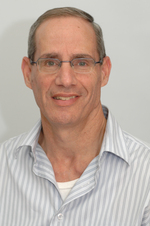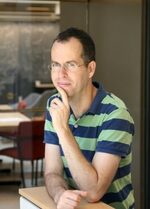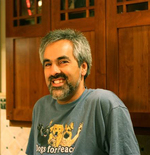
Professor
Department of Mathematics
Princeton University
and
Schools of Mathematics and Computer Science
Tel Aviv University
nogaa[ta]tau[td]ac[td]il
He is an ACM Fellow and an AMS Fellow, a member of the Israel Academy of Sciences and Humanities, of the Academia Europaea and of the Hungarian Academy of Sciences, and received the Erdős Prize, the Feher Prize, the Pólya Prize, the Bruno Memorial Award, the Landau Prize, the Gödel Prize, the Israel Prize, the EMET Prize, the Dijkstra Prize and the Nerode Prize.
His research interests are mainly in Combinatorics, Graph Theory and their applications in Theoretical Computer Science. His main contributions include the study of expander graphs and their applications, the investigation of derandomization techniques, the foundation of streaming algorithms, the development and applications of algebraic and probabilistic methods in Discrete Mathematics and the study of problems in Information Theory, Combinatorial Geometry and Combinatorial Number Theory.

Professor
Department of Mathematics and IDSS, 2-434
Massachusetts Institute for Technology
Cambridge, MA 02139, USA
elmos[ta]mit[td]edu
Mossel's research spans a number of topics across mathematics, statistics, economics, and computer science, including combinatorial statistics, discrete function inequalities, isoperimetry, game theory, social choice, computational complexity, and computational evolutionary biology.
Mossel held a Sloan Fellowship. He is a fellow of the American Mathematical Society and a Simons Fellow.

Professor
Department of Mathematics
University of Pennsylvania
209 South 33rd Street
Philadelphia, PA 19104, USA
pemantle[ta]math[td]upenn[td]edu
Pemantle's research focuses on two areas. Within Probability Theory, the research concerns discrete probability models, including random graph theory, processes with reinforcement, statistical models and random walks. The other research area, analytic combinatorics, is the subject of a textbook with Mark C. Wilson (2013).
Pemantle has also been interested in Mathematics Education from an early age, growing up with an insider's view of an alternative school, and teaching mathematics to grades 5-8 during his college years and before.
Pemantle has held a Sloan Fellowship, a Presidential Faculty Fellowship, the Rollo Davidson Prize, and a Lilly Teaching Fellowship. He was a top five finisher in the Putnam Competition and is a Simons Fellow, a fellow of the American Mathematical Society and a fellow of the Institute for Mathematical Statistics.
